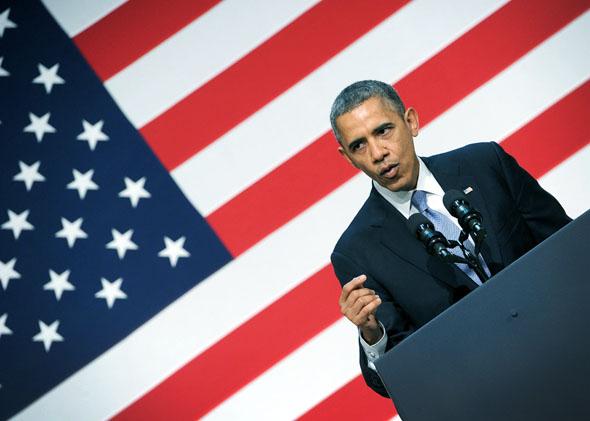From the first day of October, there have been two kinds of critics of the poor performance of healthcare.gov: those who were disappointed that the site was so bad, and those who were ecstatic that it didn’t work. With the relaunch this weekend, it looks like the administration has succeeded in doing a lot to address the concerns of universal health care’s enemies, but very little to sooth the concerns of its friends. Essentially they’re delivering a product that’s just usable enough to prevent the underlying program from failing, without doing anything to alter the public’s general perception of government.
To see the contrast, consider a less contentious realm of public policy: municipal garbage collection. On two separate occasions, I’ve found myself needing to request a large garbage bin from the District of Columbia’s Department of Public Works. It was, in both cases, an extremely frustrating experience.
The underlying system is confusing. And the purpose for the procedure is unclear—obtaining the official DPW bin is neither faster nor cheaper than ordering a similar product from Amazon. Payment for some reason requires mailing with no option to use a credit or debit card to pay online or over the phone. The staffers who answer the phone when you run into problems or delays have little practical power to help, and a daily routine of dealing with irate citizens whose problems they can’t solve has eroded whatever customer service skills they might once have had. Not every interaction with a government agency is this aggravating (in fact, within the same agency, the DPW staff at the Fort Totten Waste Transfer Station are always exemplary), but many of them are.
As annoying as it is, this subpar situation persists in part because at some fundamental level it works. The trash (mostly) gets picked up when it’s supposed to. And since there’s no real controversy about the principle that a city needs universal trash pickup of some kind, this is just the workaday frustration of local bureaucracy.
Health care is different. For conservatives, the myriad problems consumers had using the federally run exchanges was just another reason to abandon the goal of universal health insurance. The website issues have been viewed optimistically—almost gleefully—since if the site is sufficiently terrible, it may be impossible for a critical mass of people to sign up and the program will have to be substantially scaled back. Conversely, progressives had been hoping to build a system that didn’t just meet some bare standard of functionality but actually persuaded people that a larger state role was a good idea. After all, the user experience of private health insurance is hardly the greatest thing in the world. Building a great healthcare.gov was supposed to be part of a campaign to persuade people that government should be involved in areas that are more contentious than garbage pickup.
The kind of progress the administration claimed in a progress report released Sunday—uptime over 90 percent, page load times down to a second, the ability to handle 50,000 simultaneous users—goes a long way toward ameliorating the fear (or perhaps hope) that the system simply wouldn’t function.
But over and above the remaining questions about the back end, we’re talking about a system that functions about as well as the D.C. garbage bin operation, Amtrak security theater, or the DMV.
It’s easy to forget that as recently as September, administration officials were bragging to reporters that the website experience would become a key selling point for the Affordable Care Act. More broadly, when Obama took office, one of his key aspirations was to raise people’s opinion of the government. And after the agonies of the Bush years, it was easy for progressive-minded people to convince themselves that the frustrations of bureaucracy could be swept away. A new, youngish president and his idealistic team were going to make things work. Today it’s amusing to meet with people who work in the White House and see that from top to bottom they’re all using BlackBerrys, not because they’re clueless but because security and procurement rules preclude the use of up-to-date smartphones for official use.
Perhaps the most telling part of Sunday’s briefing with the press was when Jeffrey Zients, the administration veteran who’s been tapped to lead the healthcare.gov fixes, bragged that the team is now working with “private sector velocity and effectiveness.” This is probably not entirely true—civil service prevents the kind of swift firing and staffing-up that a private firm in crisis would attempt—but everyone knew exactly what he meant: The government, according to the people who run the government, shouldn’t be expected to do things well.
That’s an enormous lowering of expectations, and a reminder to liberals about the formidable barriers to further expansion of the welfare state. The public has long been skeptical of the political system’s practical ability to do the things progressives say they want to do. A health care website that comes in months late, over budget, and still lacking full functionality confirms all those fears when it was initially meant to debunk them. And that’s true whether or not it in some sense “works.”
